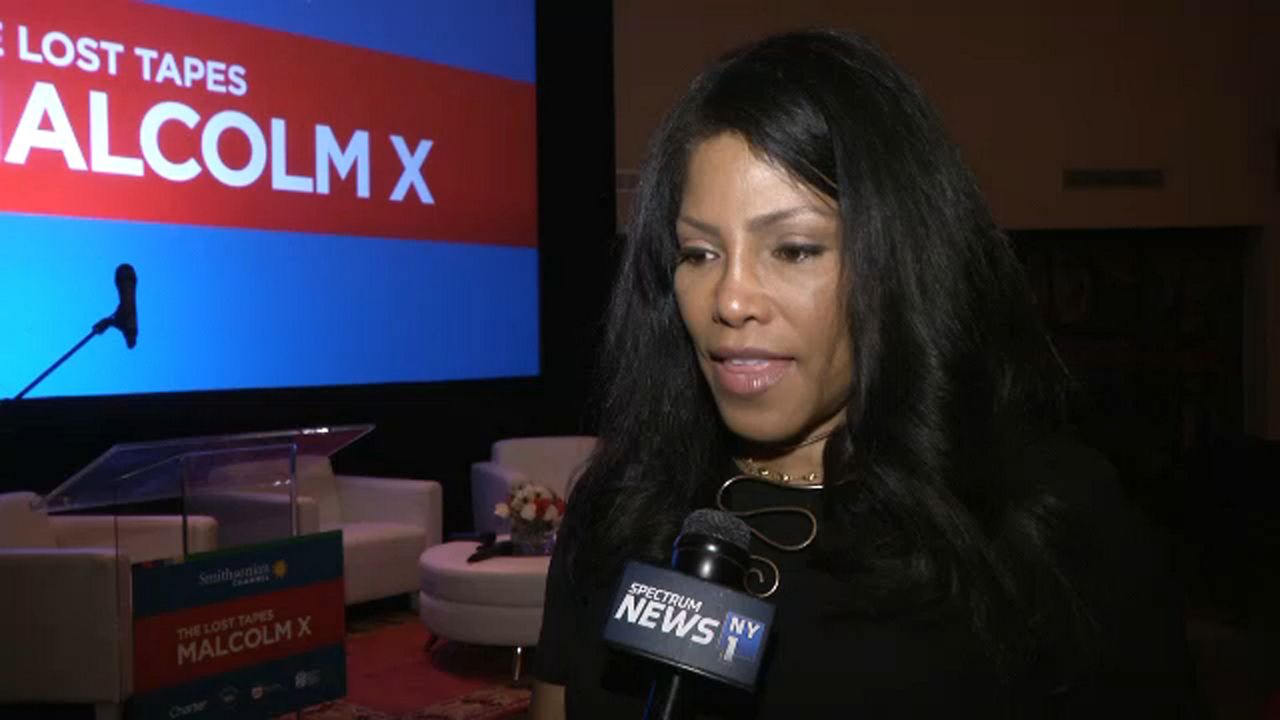

Martin Luther King Jr over their opposing views on how best to obtain civil rights for African-Americans. The first half of the film takes viewers through some of the best known moments in Malcolm X’s life-from his time as a minister and spokesman for the Nation of Islam and its leader Elijah Muhammad to his intellectual battles with Dr. “I was overwhelmed with emotion when I first saw it and I thought that it was a great piece of work.” “We finally have the opportunity to hear directly from our father’s mouth,” Shabazz said at a recent screening of “The Lost Tapes” at the Smithsonian’s National Museum of African American History and Culture, where she told the audience how she began to learn in college about the inaccurate portrayals of her father’s character and work. There is no narrator-and that pleases his third daughter, Ilyasah Al Shabazz. This film tells his story through interviews and speeches, and includes some footage from Nation of Islam rallies that has never been seen before. But Malcolm X’s views evolved after taking the traditional Muslim pilgrimage to Mecca known as the Hajj in 1964, after which he changed his name to El-Hajj Malik El-Shabazz. That is the opening quote in the Smithsonian Channel documentary “ The Lost Tapes: Malcolm X.” The one-hour film takes viewers on a journey through some of the pivotal years of an activist some thought of as a militant who preached hate against white people at a time when blacks across the nation were being economically, emotionally and physically oppressed. “We’re brutalized because we are black people in America.” We’re not brutalized because we’re Catholics,” Malcolm X tells a rapt audience. We’re not brutalized because we’re Muslims. We’re not brutalized because we’re Methodists. “We’re not brutalized because we’re Baptists. What better instrument for a man whose forceful, fiery speeches transfixed the nation in the midst of the 1960s civil rights movement-and made tangible the anger and frustration of African-Americans who were simply catching hell. Malcolm X: The Lost Tapes is set to premiere on the Smithsonian Channel on Monday February 26th at 8 pm ET/PT, 7 pm CT.The voice of Malcolm X is like a baritone saxophone-powerful, full, and deep with a gravely gravitas that demands your attention. Suggesting that it was silly to wait for segregationist Congressmen to end Jim Crow, Malcolm summarizes with a clarion call for “freedom, justice and equality by any means necessary.”Īn intriguing contribution to the enduring legacy of a common street pimp-turned-revolutionary Muslim firebrand. He also attempts to convert black military veterans to his cause by declaring that if they were willing to die overseas fighting to save Europeans from Hitler, they ought to be just as eager to shed blood to liberate their own people.

If someone puts his hands on you, send him to the cemetery!”
“There is nothing in the Koran that teaches us to suffer peacefully. Martin Luther King’s non-violent philosophy. Here, he explains why he disagreed with Dr. You might be surprised to know that Malcolm attended but did not speak at the historic March on Washington in 1963. The film features found footage illustrating the late civil rights leader’s concern for the welfare of all African-Americans.įor instance, in one snippet, he says: “We’re not brutalized because we’re Muslims, Baptists or Catholics, but because we’re black people living in the United States.” Then, attempting to inspire his followers to appreciate their appearance, he asks: “Who taught you to hate the way you look from the top of your head to the bottom of your feet?” Malcolm X: The Lost Tapes revisits the late icon’s abbreviated career. And less than a year later, he was assassinated by three members of the Fruit of Islam, the paramilitary wing of the Nation of Islam. Since that claptrap was a core belief upon which the Nation of Islam was founded, Malcolm found himself marked for death for his blasphemous change of heart. Consequently, upon returning to the States, he announced that he could no longer ascribe to one of his sect’s basic tenets, namely, that white people were a genetically-engineered race of devils created in a lab 6,600 years ago by a rogue scientist called Yakub. While there, Malcolm prayed alongside Muslims of every hue who treated him like a brother. However, he fell out of favor with the sect’s founder, the Honorable Elijah Muhammad, soon after making his pilgrimage to Mecca. Malcolm X (1925-1965) is best remembered as the charismatic spokesperson for the Nation of Islam whose fiery speeches helped the Black Muslims’ ranks swell from 6,000 to 75,000 between 19. Intriguing Documentary Features Found Footage of Late Civil Rights Icon


 0 kommentar(er)
0 kommentar(er)
